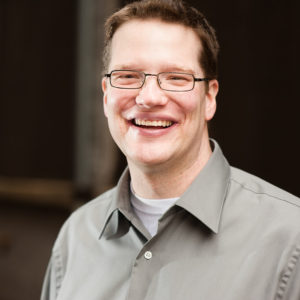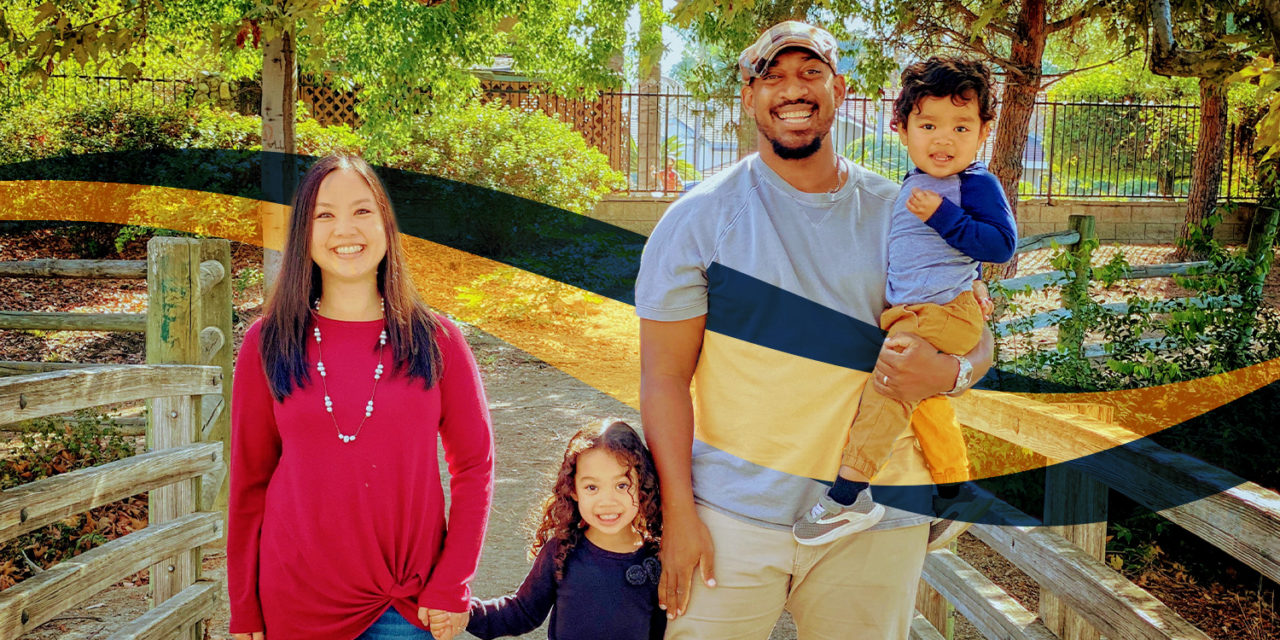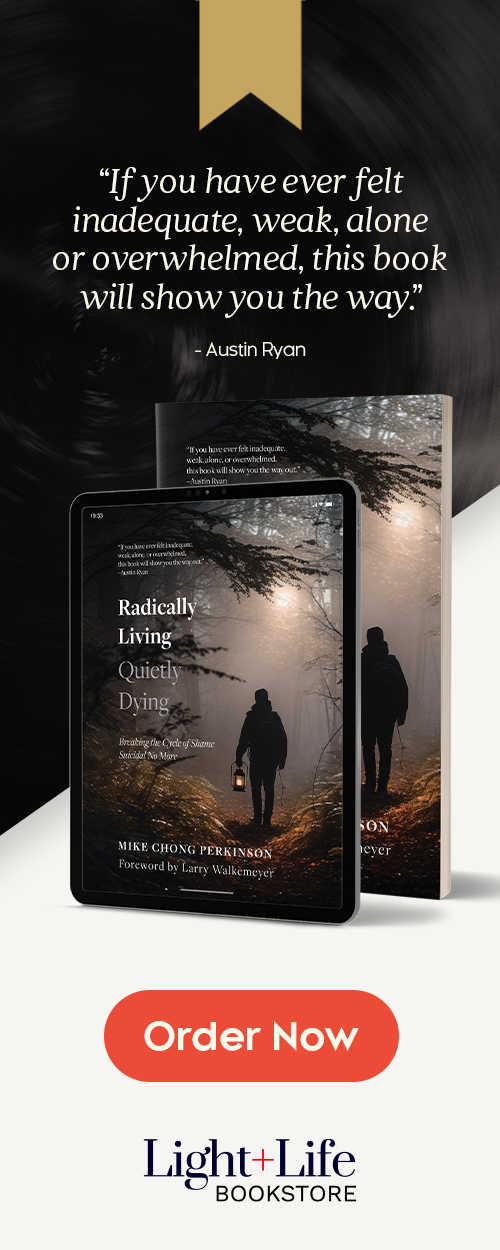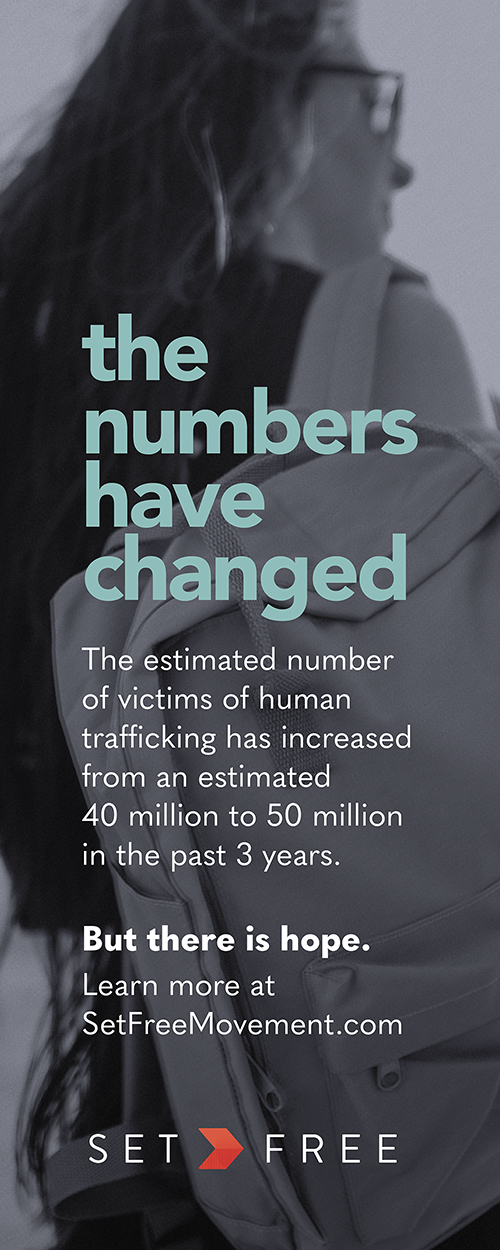
Jeff Finley
Light + Life Executive Editor
Jeff Finley is this magazine’s executive editor. He joined the Light+Life team in 2011 after a dozen years of reporting and editing for Sun-Times Media. He is a member of John Wesley Free Methodist Church where his wife, Jen, serves as the lead pastor.
by Jeff Finley
While The Free Methodist Way statement is new, it articulates a 161-year-old heritage of life-giving holiness, love-driven justice, Christ-compelled multiplication, cross-cultural collaboration and God-given revelation. These core values are reflected in the experiences of many new and longtime Free Methodists who shared with Light + Life what attracted them to their church or encouraged them to remain faithful members.
As The Free Methodist Way states, “we hold unwaveringly to our conviction that the Bible is the inspired Word of God and our final authority in all matters of faith and practice.” Two new Free Methodists, Gary and Helen Skinner, discussed how this faithfulness to Scripture recently led them to the Marion Free Methodist Church in Iowa.
“Late in winter 2020, we became determined to find a church whose values still parallel what the Bible says. With the help of a friend who had researched that very subject, it was determined that the FMC was a good candidate. On our first visit we could tell the Holy Spirit was alive and well,” the couple said in an email to Light + Life. “It became obvious that the church had strong principles that were lacking from our previous church.”
As The Free Methodist Way notes, “Jesus’ approach to discipleship was primarily a relational one.” The Skinners said that “Pastor Peter Shaw’s tireless energy seems to rub off on everyone in the church,” and they “liked the fact that we were accepted as part of the FMC family from the day we stepped foot in the door. Everyone was so friendly and talked to us. We have attended churches that didn’t even know you were in their church after many visits. We feel like we can grow with Christ and His Word in the FMC. The people of the FMC truly live by what the Bible teaches.”
A Theological Home for Young Leaders
Joshua and Alyssa Canada did not grow up in churches with Wesleyan theology, but they said that they “gravitated toward Wesleyan and Anabaptist writers and churches in the early years of our marriage while living in Indiana.” They moved to California and visited the Free Methodist Church of Santa Barbara in 2010 where they found a welcoming congregation and thoughtful sermons.
“The FMC is the first place that I felt home and a theology that matched my spirituality and intersected with my vocation as a social worker,” Alyssa said.
The couple said the church’s pastors and Board of Administration “made an intentional effort to grow young leaders so we were invited to attend annual conferences and General Conference 2011. … We continued to attend, joined a small group that was immensely life-giving, and got involved in lay leadership through the BOA (Joshua) and the Cliff Drive Care Center Board (Alyssa). Eventually we got involved in the conference MEG (Alyssa) and conference BOA (Joshua).”
Joshua added, “The robust expression of the FMC has great appeal to society and young Christians. I pray deeply that we can step away from generic forms of Christianity and be a particular people called to holiness that humbly brings restoration and healing.”
The couple joined another FM congregation, Foothill Community Church, when they moved to Azusa, California, where Joshua serves as the director of strategic partnerships at Azusa Pacific University.
“I value the perspective diversity in what Howard Snyder expressed as the Free Methodist Synthesis. The prospect of having a denomination that can share a core theology but that can articulate that theology through local ecclesial expression that is informed by Anabaptist, Anglo-Catholic, Charismatic, and Evangelical streams of the faith is very hopeful for me. It provides a framework for a diverse church racially, culturally, and in theological expression,” Joshua said. “I also deeply value the dogged passion of early Free Methodists who were a bit of ‘old school’ Methodists and committed to a way of being in the world that sought justice as an expression of holiness (God’s character).”
Wendy Seyfert, another Foothill member, became part of the church when she received an invitation in her mailbox while a student at Azusa Pacific.
“On my first visit, the senior pastor wasn’t there so I thought I’d come back the next week. The associate pastor’s wife remembered me and greeted me. I was sold,” Seyfert said. “I had never heard about Free Methodists before, even though I was raised just an hour away from where I ended up. I am proud of our roots and that we talk about living those out. … I appreciate that laity and women can have a voice.”
When asked about reasons he appreciates the Free Methodist Church, Matt Jin of the Spring Arbor FMC said “first and foremost, the commitment to Jesus Christ and to the Bible. And the second is like it: the commitment to people, specifically those who are marginalized. I appreciate the Methodist roots that push toward sanctification, the way in which issues of race and poverty have historically been emphasized, and the way the FMC has been forward-thinking when it comes to the importance of higher education. … Where better to train the next generation of Free Methodist leaders than in Free Methodist colleges? It’s not going to be the right fit for everyone, but I would want our high school students to at least have the exposure so they have the opportunity to make that informed decision.”
Eric Logan, a member of the Free Methodist Church – USA Board of Administration, initially connected to the denomination through one of these colleges although it took time for him to make the FMCUSA his official church home in the early 1990s.
“I attended and graduated from Roberts Wesleyan College but maintained my membership in the Baptist church, even while performing ministry and outreach in Free Methodist and Wesleyan environments,” said Logan, who added that he eventually “was drawn to New Hope FMC, my current church, by a personal contact from the pastor performing the church plant, joined this society and have been there ever since.”
Logan said he appreciates Free Methodists’ “care for each other, holistic theology encompassing personal holiness, and responsibility to serve each other with an emphasis on biblical justice. There is a commitment to truly understand Scripture both in intent and in context so that it can be applied meaningfully in our context, and a willingness to prayerfully and with discernment, wrestle with the tension that creates personally and culturally. As ‘iron sharpens iron,’ I have grown, been challenged, and comforted through my interactions with pastors and laity at New Hope. As I have moved into conference and denominational leadership, I have come to appreciate even more the spiritual depth and competence in our leadership, and the Free Methodist ‘DNA’ that we are reawakening in light of our witness to our nation.”
Staying Connected
Many Free Methodists who grew up in the denomination said they have stayed or returned because of the denomination’s values and unique characteristics.
“I am fourth-generation FM but grew up in a smaller church. As a teen I felt that I was really missing out on the ‘big church’ experience, so when I married my husband, we shopped around in different churches and denominations,” said Julie Paul Bolin, a member of The Edge FMC in Pineville, Louisiana. “We ended up back in the FM fold (actually the church I was raised in), and some of the most important things were the organization of the denomination, the emphasis on social justice, and the ordination of women as well as their recognition in positions of leadership and authority. This was especially important to me having grown up in the Deep South.”
Longtime member Beth Fountain also expressed gratitude that the denomination does not marginalize women.
“I am thankful for the Free Methodist Church and the opportunities it affords for women in ministry in the local church. I first taught Sunday school at 13 years of age, was a leader in my FMY group, and led the singing on Sunday evenings many times when it was the teens’ night,” said Fountain of Port Huron, Michigan. “As an adult, I taught classes of all ages, nursery through senior adults. I held positions such as a lay minister, board member, WMI president and eventually I studied for the ministry — feeling a call to minister to the homebound and hospitalized. My church made me an associate pastor until I had to resign after a heart attack. I thank both God and my church for the wonderful experiences I had serving the Lord. Rev. B.T. Roberts had it right when he included women in God’s ministry.”
Carrie Haley is a member of the Knox Knolls FMC in Springfield, Illinois, that she grew up attending. The 2011 graduate of Greenville University said she appreciates “the practices of the FMC. Open communion is something in particular that I find welcoming. I love the outreach ministries that my local FM church does. We have ministry houses across town to help those in need and have recently started a micro-pantry, among other ministries.”
Dawn Martin, who grew up as a pastor’s daughter and now is the wife of Avon (Indiana) Light and Life’s lead pastor, said she appreciates the denomination’s “support of women and fight for racial equality.” She also said the FMC has, “in making decisions about doctrine, looked at Scripture and emphasized conscience and the Holy Spirit’s guidance for every believer in behavioral decisions.”
John Hokanson grew up attending Free Methodist churches in Minnesota and now is a member of the Calapooia FMC in Sutherlin, Oregon. “I have many fond memories of the holiness preaching and revivals where my grandma and aunts were truly blessed and filled with the Holy Spirit,” said Hokanson, who added that he and his wife “love our pastor and the wonderful fellowship of Bible-believing Christians.”
Geneva Blankenship, a member of the Hillsboro FMC in Illinois, said she “was born into the FM Church as a fourth-generation FMer and although I strayed denominations for a few years, I always claimed FM and have been back for 20-plus years. I like the government of the church, the sizes of the churches, and the biblical preaching and teaching. The diversity of the music in worship has always been a strong point. When we have traveled, we have often attended an FM church, and I always feel at home there. There seems to be a feeling of ‘they will know we are Christians by our love.’”
Members also said they appreciate the connectional nature of the church.
“I appreciate the family atmosphere,” said Sarah Baird, a member of the Midwest City FMC in Oklahoma. “Anytime I go somewhere affiliated with the church, I end up meeting someone who knew my parents or grandparents from long ago and get to hear stories.”
Julie Olson Reid said that when she and her husband first visited Timberview Church near Spokane, Washington, “we met [now Bishop Emeritus] Matt and Marlene Thomas. Marlene remembered my great-grandmother from her early years in New Westminster, British Columbia. That sealed it for me. Timberview has been our church home for 25 years. I would want others to know about this family! People are looking for a place to belong, where ‘everybody knows their name.’ I strongly believe FM churches have great strength in this area.”+

Jeff Finley
Light + Life Executive Editor
Jeff Finley is this magazine’s executive editor. He joined the Light+Life team in 2011 after a dozen years of reporting and editing for Sun-Times Media. He is a member of John Wesley Free Methodist Church where his wife, Jen, serves as the lead pastor.









